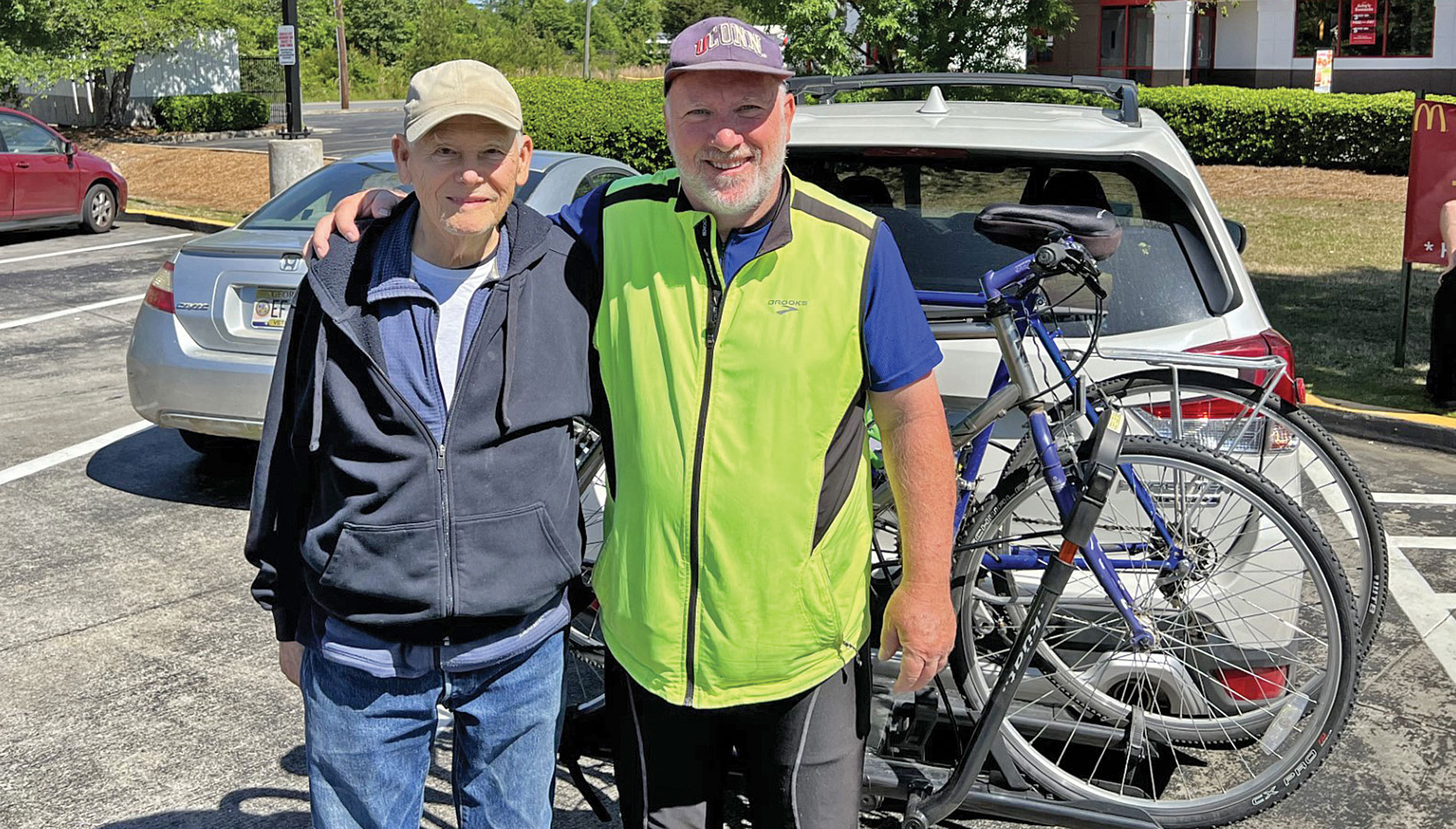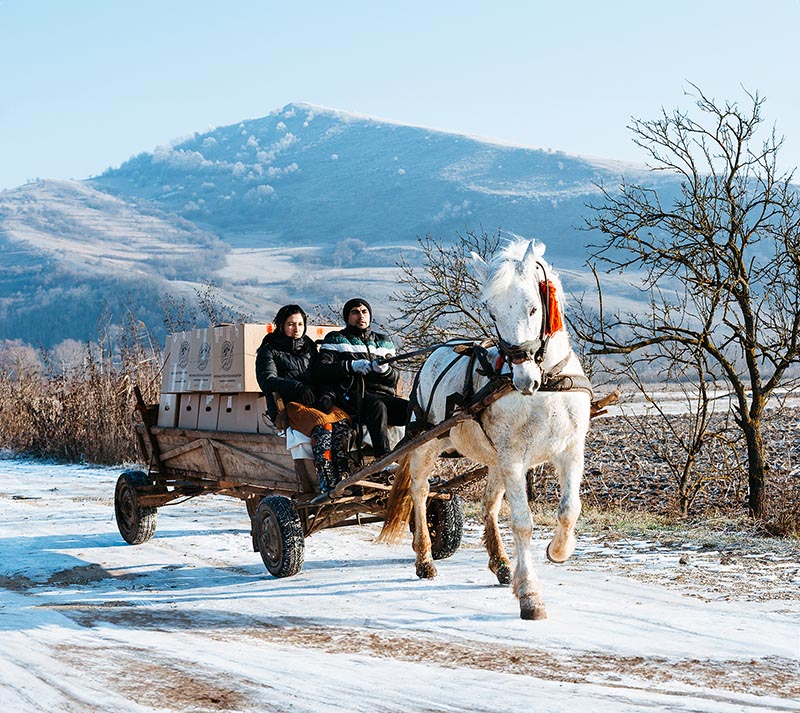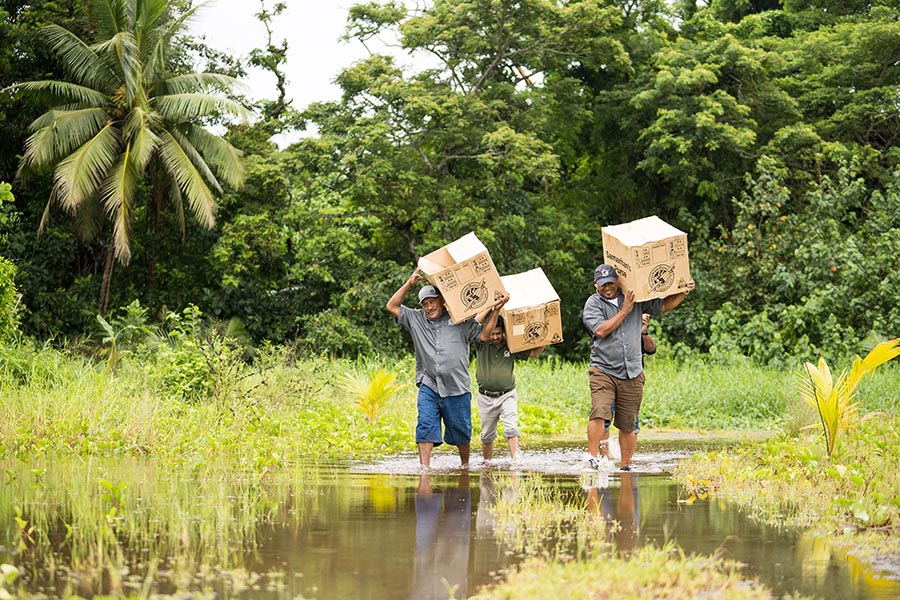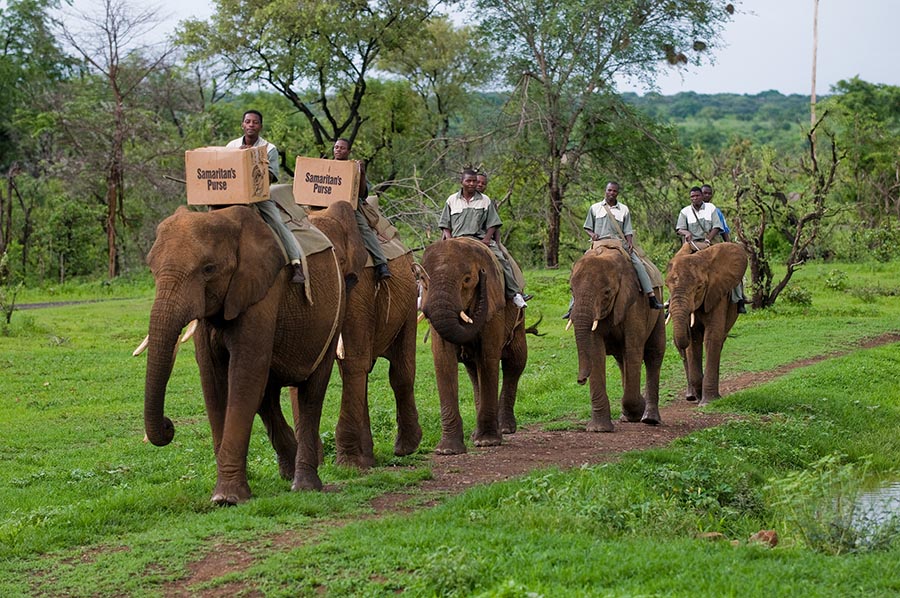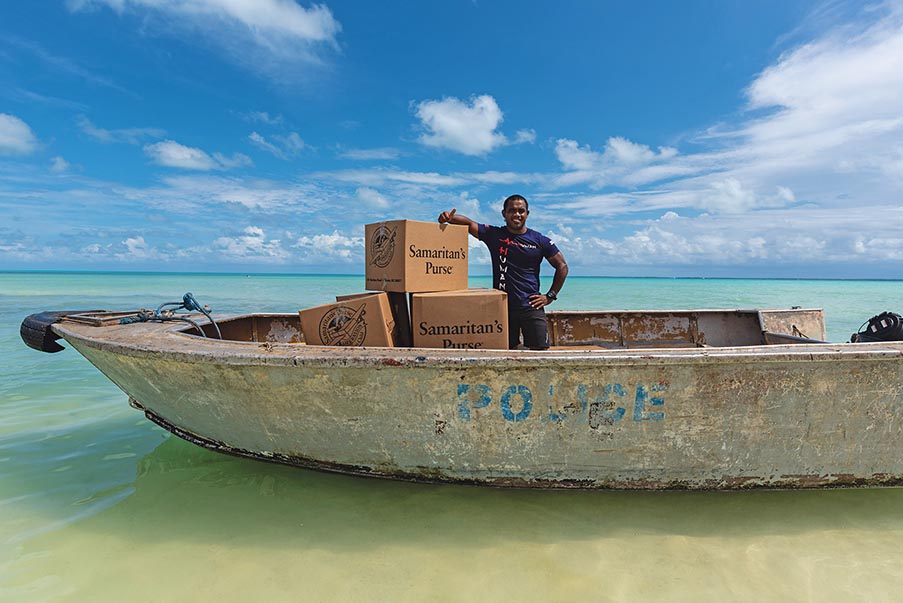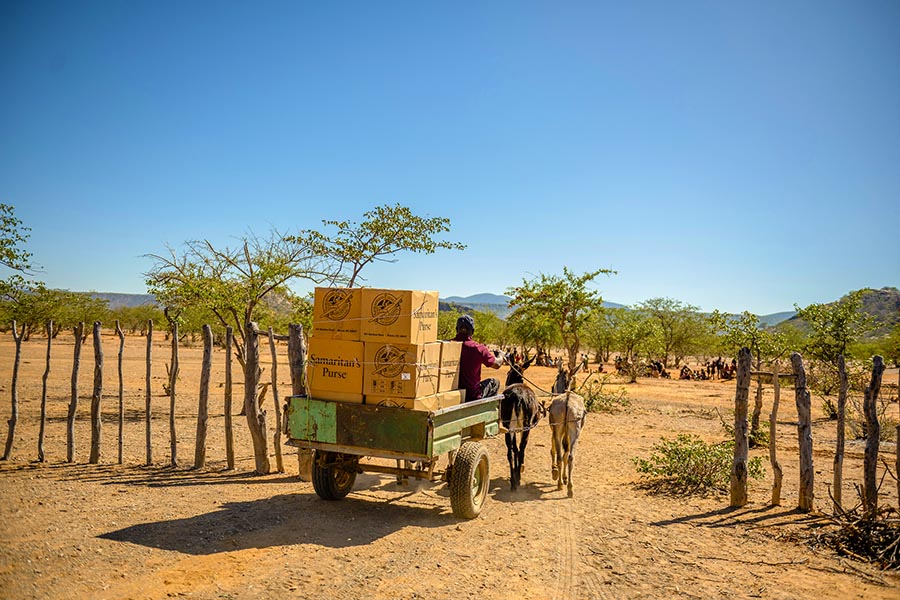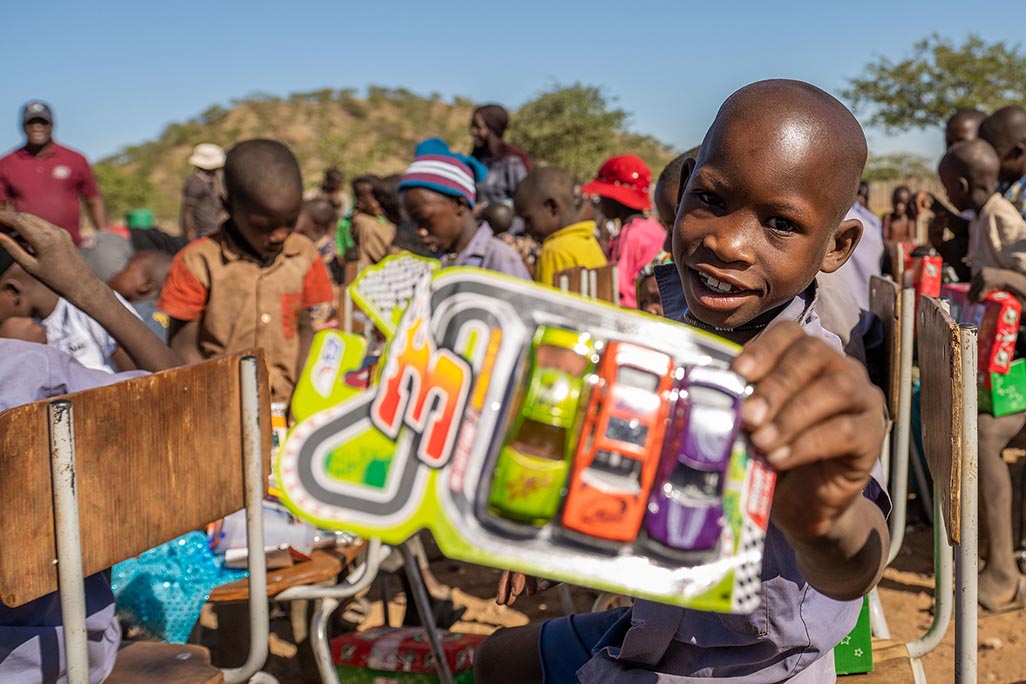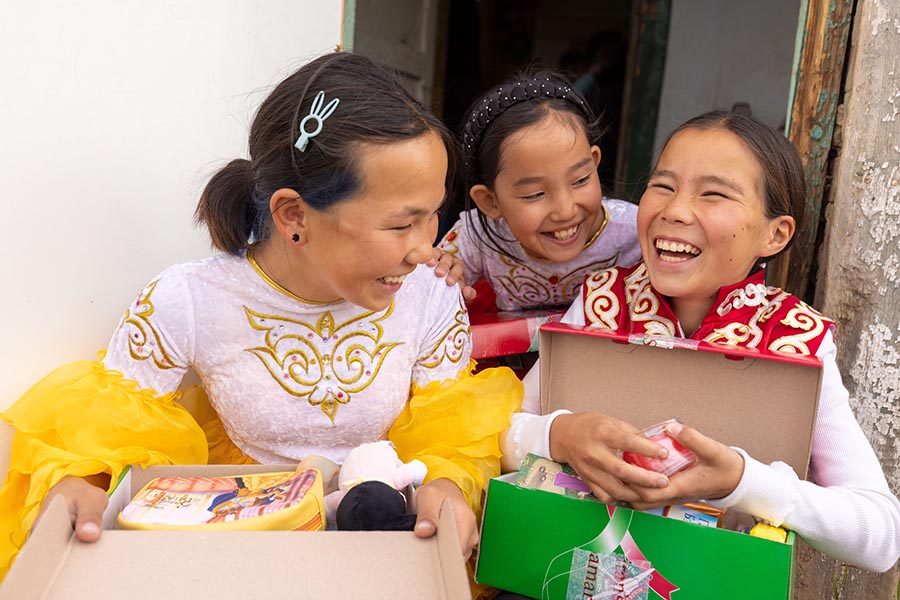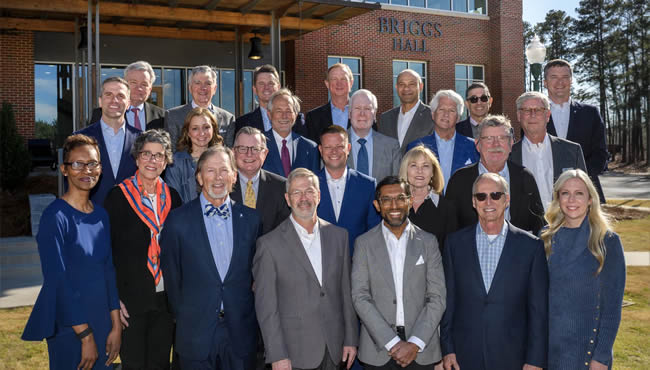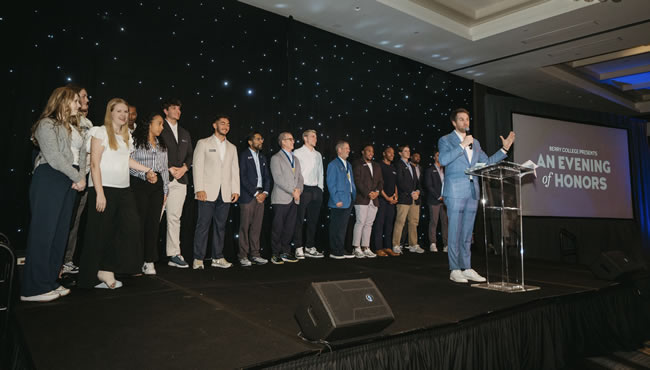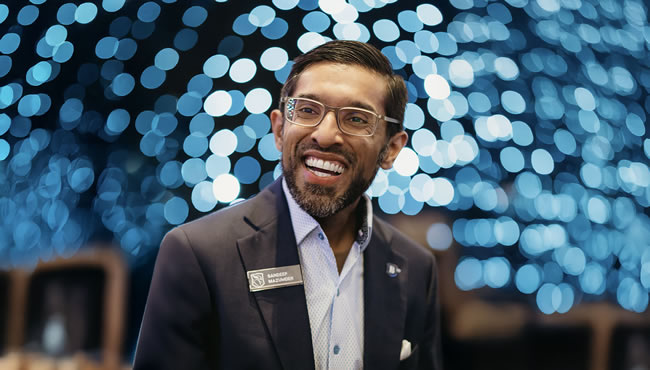Mick McCann (80C), right, has traveled many miles since his Berry days, but Eston “Sam” Alford (FFS) – the college electrician who supervised his efforts as a student working in the physical plant – remains close to his heart.
Recently, Mick reflected on their lifelong friendship in a post written for his blog, Geographical Journeys. “It could only happen at Berry College” chronicles a relationship spanning more than 40 years, during which time the Berry Spanish major served as a foreign missions worker in Mexico, a sea kayak wilderness guide in Alaska, a business owner, and finally a college professor teaching geography and leading a study-abroad experience in Barcelona, Spain.
Through all that time, he never has lost touch with his former supervisor, who Mick likens to “the older brother I never had.” On the surface, the two had little in common – Alford was a Floyd County native, Mick a self-described “Yankee” from the mid-Atlantic region. One liked peanut butter and jelly sandwiches, the other tomato (Mick still swears that tomatoes should only be eaten in condiment form).
Despite their differences, the two introverts forged a deep bond working side-by-side in corners of the Berry campus few have seen: boiler rooms and basements, crawl spaces and sweltering attics, rooftops and even the inside of silos, literally “anywhere there were wires carrying electricity.”
In the intervening decades, they have stayed in touch, meeting when Mick’s travels looped through Georgia, often returning to campus to share a meal and quiet conversation. At other times, Alford, who retired after 27 years of service to Berry, proudly tracks the adventures of his protege on a map in his home.
Writing gratefully of his own experience, Mick penned, “I only hope that Berry’s current student population still has some of the same opportunities in the work-study program that I had long ago … and that there are other people like Sam still working at the college to mentor them.”
Rest assured, Mick, there are!
A shoebox journey
Each spring, the organization analyzes what went well the prior season and where improvements can be made with varying OCC destination countries.
“We then target some of these countries where we can address identified complications,” Howard explained. “Tax-exemption status is our most common challenge – as a charity, we cannot pay taxes to destination countries – as well as when customs officials start to get tough about letting the shoeboxes in. I go to those countries to meet with government officials and resolve issues, working with our in-nation volunteers. In some places, the customs officials become almost as excited as we are about the shoeboxes’ arrival and partner with us for years to come.”
These types of face-to-face meetings and negotiations are critical to OCC’s continued success, as well as to its expansion. One of OCC’s largest growth areas has been in the South Pacific, where Howard has played an integral role in setting up logistics operations to add 14 new countries as part of the Rev. Graham’s Pacific Island Initiative. This effort grew out of the crisis response mounted by Samaritan’s Purse after Typhoon Yutu struck Saipan in the Northern Marianas in 2018.
“When that box shows up at customs ... it can become a delicate process. With every box packed uniquely, we can’t say exactly what’s in each box, but we can say what’s NOT due to our thorough processing.”
An additional purpose of OCC is to offer children the opportunity to participate in “The Greatest Journey,” a 12-lesson Christian discipleship course from which 24.9 million have graduated, but Howard emphasized that children receive gifts without regard to faith or religious background.
Howard sometimes finds it difficult to operate in what he describes as a “broken world” post-COVID in which exporters are heavily impacted by broken supply chains and limited cargo space (although OCC always manages to get the shoeboxes out). This disappointment, however, is more than assuaged by the people, especially the volunteers, with whom he works.
“Coming to a country and seeing volunteers in person whom I’ve worked with over the phone or on Zoom and clicking with them immediately is like a homecoming,” he asserted. “Perhaps it’s because we have the same mission and the work we are doing is something God is accomplishing through us.”
Good preparation
Howard’s time before and at Berry certainly was a springboard for a future in international service. His first eight years were spent in Brazil with his missionary parents before the family returned to the States and life in Bremen, Georgia. While Berry was his first choice, he also was accepted to other colleges before becoming a Viking, initially as a history major.
Four years later, he’d earned a degree in international studies with a minor in economics, worked four years in the President’s Office, served two years as president of Habitat for Humanity, participated in Model U.N., served on the Judicial Council and as a Presidential Ambassador, gained membership in the Leadership Honor Society, and helped rev up the student body as a member of the Viking Drum Line.
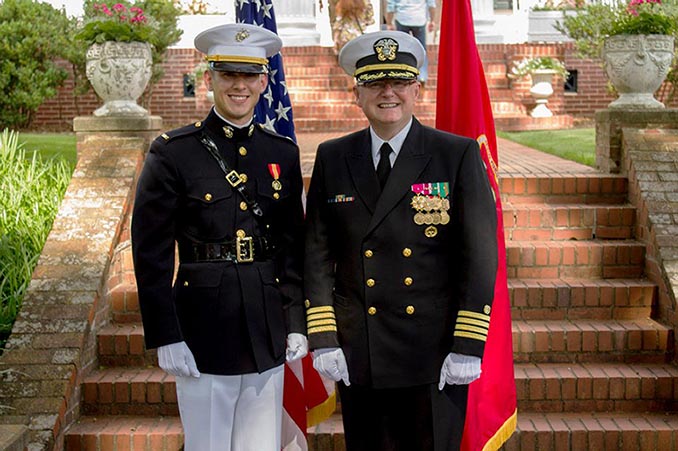
and then Chief-of-Staff Alexander “Whit” Whitaker IV (81C, FFS).
He got a lot out of his activities and academics – mentioning Dana Professor of Political Science and International Affairs Kirsten Taylor, his academic and Model U.N. advisor; and Professor of Government and International Studies Emeritus Chaitram Singh in particular – but pointed to his work in the President’s Office as something uniquely special.
“My work there was the first time for me to interact with people like trustees and other college presidents,” he explained. “I learned communication skills, professionalism, responsibility, and how to interface with people and speak in public. It broke me out of the shy, timid shell I was in during high school. It took me out of my comfort zone.”
Service with the United States Marines did the same.
“In high school, I was going to enlist,” he recounted, continuing with a laugh and broad smile: “Mom said no. I said yes. Mom said NO, but after college I could join the circus if I wanted to. I went to college, and the Marines wasn’t far from the circus!”
Once at Berry, Howard imagined graduate school as his next step but changed course after attending a career fair with some buddies. Bored while he talked to possible future employers –“I never was interested in going into the corporate sector” – he wandered over to the table manned by Marines.
“I told them I’d been interested in high school but decided to go to college,” he remembered. “They told me I could do both and asked me if I knew about officer training. I didn’t.”
The next thing Howard knew, he was at Officer Candidate School in two six-week summer stints before his junior and senior years. One week after graduating from Berry, he was commissioned as an officer at Oak Hill, sworn in by one of his greatest Berry mentors, then-Chief of Staff Alexander “Whit” Whitaker IV (81C, FFS), a retired Naval officer who now is president of King University. That October, Howard attended the Basic Officers Course, followed by Logistic Operations School. Before these programs, he squeezed in two months over the summer as a Syrian refugee relief volunteer in Jordan.

children each year.
Oorah!
Capt. J. Michael Howard was stationed at Marine Corps Base Kaneohe Bay, Hawaii, on the island of Oahu, with the 1st Battalion, 12th Marine Regiment (Artillery). He led the logistics and supply departments in support of rapid deployment and redeployment of the unit across the rim of the Pacific.
His regular focus was on moving equipment, personnel, ammunition, radios and so forth to training locations in such places as the Mohave Desert; Okinawa, Japan; Darwin, Australia; and the Pohakuloa Training Area on the Big Island of Hawaii.
It’s not as simple as it sounds. When he says “equipment,” he’s talking about such things as 9,000-pound M777 howitzers, powerful guns 35 feet in length capable of destroying targets 18 miles away. [That’s why they must train elsewhere. The noise from shooting off a few of those howitzers so close to Oahu’s Waikiki Beach likely would create quite a stir.]
Although he made the decision to leave the military (and Hawaii!) in 2018, he declares leading Marines to be “the highlight of my life.”
“The Marine Corps has three purposes,” he explained. “First, to make Marines. Second, to win battles. Third, to return quality citizens. The people I got to work with were some of America’s best sons and daughters. They were people called to service – young people from various backgrounds –
all coming together as professionals with respect and devotion for each other.”
Find it and run toward it
While completing 100-mile ultra-marathons in the mountains of Western North Carolina and around the U.S. is how Howard chooses to unwind, he isn’t running from anything. Rather, he is always running to his passion for doing God’s work through Operation Christmas Child.
And he remains grateful for the path he feels Berry made possible for him.
“If I went to a state school,” he mused, “I’d likely still be the timid, shy person I used to be. But people at Berry saw me, invested in me and put me in a position to shine – like my job in the President’s Office. It just happens. Berry has a mysterious way of taking people and showing their potential through the work program, student activities and other involvements.”
Oh, and he immensely enjoys how he turned the tables on his mother, Sylvia, who was so intensely focused on his going to college. The man who felt he had always been known as “Sylvia’s son” as a boy recalled with a laugh how his mother frequently was referred to and introduced as “Michael’s mother” when she began working in the Berry President’s Office three years after his graduation.
We doubt she minded a bit. And we bet she has packed more than a few shoeboxes.
